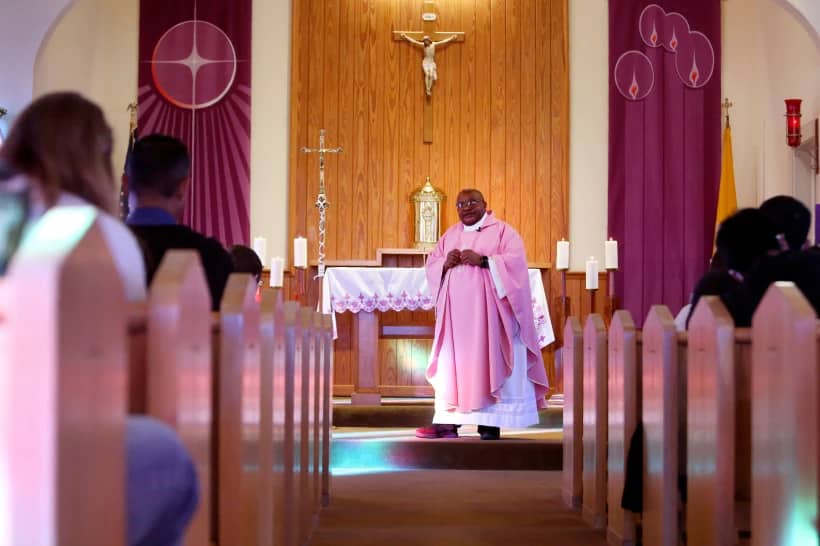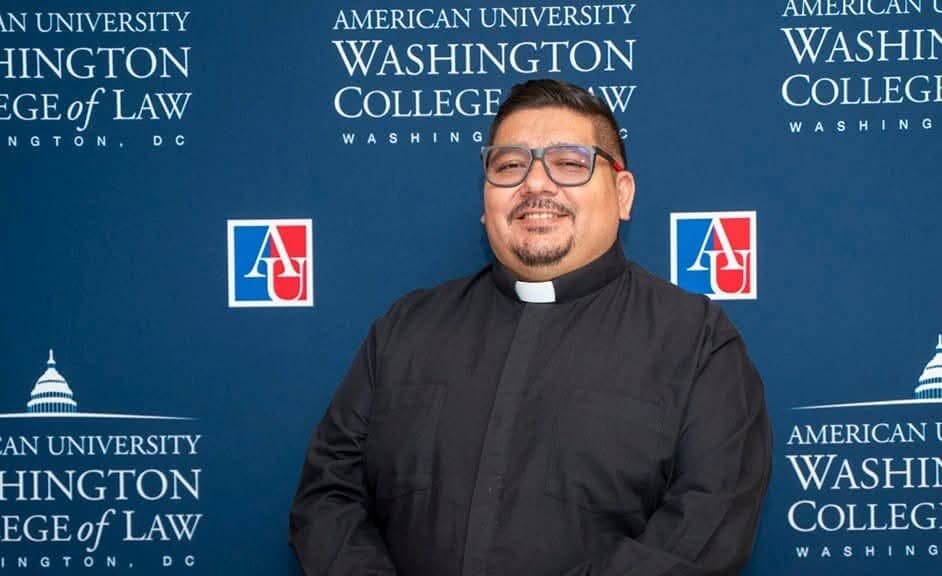PHOENIX, Arizona — Bishop Thomas Olmsted of Phoenix was named Wednesday as apostolic administrator sede plena of the Byzantine rite eparchy which is also based in Phoenix.
The Ruthenian Eparchy of Holy Protection of Mary of Phoenix is led by Bishop John Pažak, 71, who was appointed in 2016.
“Let me first state that this appointment has not come about because of any personal misconduct of any kind on the part of Bishop Pazak. Indeed, Bishop Pazak remains as the Bishop of this Eparchy,” Olmsted stated Aug. 1.
“However, over the past year there have been some disagreements about administrative matters within the Byzantine Ruthenian Church here in North America, of which the Eparchy of Phoenix is a part. Because of some unfortunate legal developments in these matters, their resolution has been unnecessarily complicated.”
The legal developments “have unintentionally endangered the peace, unity and communion” of the Ruthenian Catholic Church, the Latin rite bishop said.
Olmsted has been appointed apostolic administrator of the Phoenix eparchy to “facilitate the task of resolving these legal matters” and to “support the efforts on everyone’s part to build up the communion” within the Ruthenian Catholic Church.
The bishop added that his appointment as apostolic administrator has “no fixed term” and he is “happy to serve in any way that will support my brothers and sisters in this Eparchy.”
Olmsted’s statement mentioned “unfortunate legal developments” related to “disagreements about administrative matters” within the Ruthenian Catholic Church in the U.S.
On April 26, the Phoenix eparchy filed a suit claiming that an employee benefits company had wrongly started a self-insured health plan with funds from the eparchy, which believed it was paying premiums to secure insurance products for its employees, Danielle Smith reported at Law360.
“The Byzantine Catholic Eparchy of Phoenix said in its complaint that Aetna-owned Meritain Health Inc. and Ohio-based Employee Benefits Services Inc., or EBS, flouted their fiduciary duty under the Employee Retirement Income Security Act by using assets meant to pay insurance premiums for the eparchy’s roughly 21 employees to pay for expenses and fees, among other things, instead,” Smith wrote.
It said EBS had also, prior to 2012, been selling health insurance to the other Ruthenian eparchies in the U.S.: Passaic, Pittsburgh, and Parma.
The Phoenix eparchy in 2012 joined the Eastern Catholic Benefit Plan, which the eparchy called in its complaint “the unregistered, fictitious name provided by Defendants of an employee welfare benefit plan … that was established and maintained to provide welfare benefits to participants.”
The eparchy said that “EBS falsely promoted ECBP … as a fully-insured health plan that would provide equivalent benefits at lower costs than the insurance previously in place.”
It said it opened a joint checking account with EBS, which it understood and intended that “all of the assets in the account were to be held in trust and used for the sole and exclusive purpose of paying insurance premiums for medical, dental and drug insurance benefits to the approximately 21 employees of the Eparchy of Phoenix who participated in ECBP and their eligible beneficiaries.”
This joint account “created a fiduciary relationship by and among ECBP, the participants of ECBP, the Eparchy of Phoenix and EBS,” the eparchy maintained.
According to the eparchy in Phoenix, “EBS pooled the contributions with assets from other employers and used the funds to pay itself and for claims from the other organizations’ employees — all without the eparchy’s consent,” Smith reported.
The eparchy says it contributed more than $1 million to the joint account between 2012 and 2015. The Phoenix eparchy ceased participating in ECBP Dec. 31, 2015.
The Phoenix eparchy alleges that its assets were “used for the benefit of and have unjustly enriched” several defendants “and other parties including, upon information and belief … other Eparchies.” It says that it was owed surplus assets when it withdrew from ECBP, and has not been paid.
The eparchy’s complaint said that in or around 2017 EBS merged ECBP with the benefit plans for the Maronite Eparchy of Our Lady of Lebanon of Los Angeles and for the Melkite Eparchy of Newton, both of which it called groups “with different religious beliefs than the Byzantine Catholic Diocese.”
Both the Maronite and Melkite Churches are sui iuris Eastern Catholic Churches in communion with the Bishop of Rome.
The eparchy of Phoenix filed an amended complaint June 18, which added as defendants the administration committee of the ECBP, which it listed as Bert Reimann, William C. Skurla, and Robert Shalhoub.
Skurla is Archbishop of the Ruthenian Archeparchy of Pittsburgh, and as such, the metropolitan bishop over the Phoenix eparch.
The amended complaint says Skurla was a fiduciary and a party in interest under the Employee Retirement Income Security Act.
According to Law360, Skurla was dismissed as a party to the case July 30.
Before his appointment as Ruthenian Bishop of Phoenix, Pažak was Bishop of the Slovakian Eparchy of Saints Cyril and Methodius of Toronto. He became apostolic administrator of the Toronto eparchy when he was transferred to Phoenix.
On July 5, Father Marián Pacák was appointed bishop of the Toronto eparchy.














